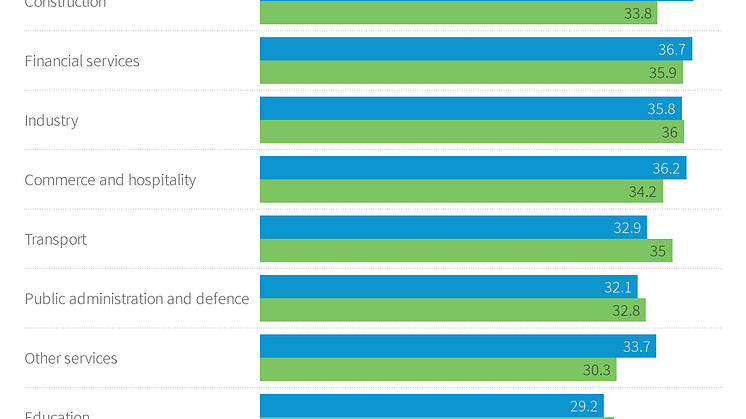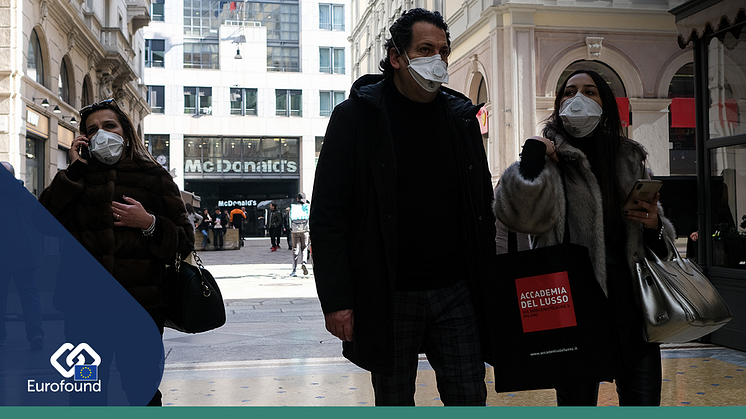
News -
COVID-19 likely to exacerbate work intensity and gender imbalances on labour market
The Coronavirus (COVID-19) pandemic is having major implications on the labour market in Europe. For the majority of sectors, it is resulting in a simultaneous drop in both demand and supply, and several Member States are expected to be in recession by the end of the year. At the same time, the crisis is resulting in increased demands on workers in some key sectors, most notably in health. Eurofound research shows that the health sector already has among the highest reported work intensity scores. COVID-19 risks not only exacerbating imbalance between sectors, but also creating a broader gender imbalance in work intensity on the labour market.
According to the EU Labour Force Survey, the human health activities sector in the EU27 employed over 12 million people in 2018, representing 6% of the total employed population. Some 75% of these are women. Eurofound’s analysis of the 2015 European Working Conditions Survey shows that, of the ten major sectors in the European economy considered, women working in health reported the highest work intensity index scores. In general, women report higher levels of emotional demand at work; this can involve handling angry clients or patients, hidings one's feelings and being in situations that are emotionally disturbing. The COVID-19 pandemic, and the labour market responses required, is likely to exacerbate these issues even further.
Speaking about the findings, Jorge Cabrita, Eurofound Research Manager, said “Every job is, to a greater or lesser degree, subject to several demands; not only emotional demands but physical and social demands as well as work intensity and working hours. However, it is important to recognise that the COVID-19 crisis is affecting female workers, and most notably female healthcare workers, disproportionately. Policymakers must do all they can to immediately support and protect those on the front line, and to address structural labour market imbalances as soon as this crisis subsides."

Read more:
Read further:
- Report: Gender equality at work
- Topic page: COVID-19
Get the data:
- Datawrapper: Work intensity index scores




